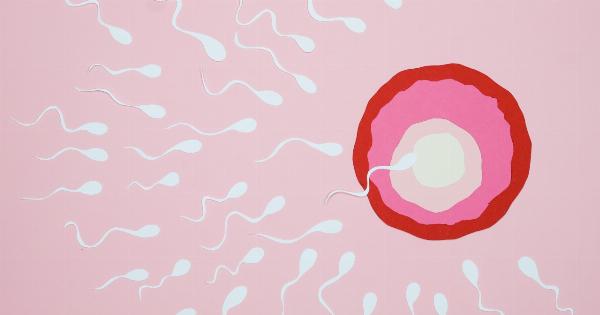In vitro fertilization, commonly known as IVF, is a popular infertility treatment that helps couples conceive a child by combining a woman’s egg and her partner’s sperm outside of the body in a laboratory, then transferring the resulting embryo(s) into the uterus. While the success rates of IVF have increased significantly over the years thanks to the advancements in medical technologies, there is still no guarantee that the treatment will work for every individual or couple.
One of the factors that can influence the success rates of IVF is sperm quality. If the male partner has a low sperm count or poor sperm motility, it can be challenging to extract enough good-quality sperm for the IVF procedure.
To address this issue, many clinics offer sperm cryopreservation as an optional service for their patients.
What Is Sperm Cryopreservation?
Sperm cryopreservation, also known as sperm freezing, is the process of preserving sperm cells by freezing them in liquid nitrogen at -196°C.
The process involves adding a cryoprotective agent to the sperm to protect it from damage during the freezing and thawing process. Once the sperm is frozen, it can be stored for years until it is needed for IVF or other assisted reproduction techniques.
The Benefits of Sperm Cryopreservation
Sperm cryopreservation offers several benefits for couples undergoing IVF or other fertility treatments. Some of the advantages of sperm cryopreservation include:.
Increased Convenience
Many couples find it more convenient to freeze their sperm beforehand instead of producing a sample on the day of ovum retrieval. This is especially true for couples who live far away from the clinic or have busy schedules.
Improved Sperm Quality
Freezing sperm can improve its quality, especially if the male partner has a low sperm count or poor sperm motility. The cryopreservation process can help eliminate defective sperm, allowing only the healthiest and most viable sperm to be used for IVF.
Reduced Stress
For some men, producing a sperm sample on the day of ovum retrieval can be stressful and challenging. Knowing that they have a backup supply of frozen sperm can help reduce their anxiety and improve their chances of having a successful IVF outcome.
Potential Cost Savings
Many clinics offer discounted prices for sperm cryopreservation when it is done in conjunction with IVF or other assisted reproduction techniques. This can help couples save money on the overall cost of fertility treatments.
The Impact of Sperm Cryopreservation on IVF Success Rates
According to several studies, using frozen sperm for IVF can have a positive impact on the success rates of the treatment.
One study published in the Journal of Reproductive Medicine found that the use of frozen sperm resulted in a higher fertilization rate and pregnancy rate compared to fresh sperm.
Another study published in the Journal of Assisted Reproduction and Genetics found that the use of frozen sperm did not adversely affect the success rates of IVF.
In fact, the study found that the use of frozen sperm resulted in a higher rate of successful embryo transfers and clinical pregnancies.
However, it is important to note that not all frozen sperm is created equal. The success rates of IVF using frozen sperm can vary depending on several factors, including:.
The Age of the Sperm
The longer the sperm has been frozen, the lower its quality may be. It is generally recommended that sperm be used within 5-10 years of cryopreservation to ensure the highest possible success rates.
The Method of Cryopreservation
There are several methods of sperm cryopreservation, and some are more effective than others. Clinics that use the most advanced cryopreservation methods tend to have higher success rates with frozen sperm.
Some of the modern techniques include vitrification, which involves rapidly freezing the sperm in a supercooled solution, and testicular sperm extraction (TESE), which involves retrieving sperm directly from the male’s testicles.
The Quality of the Sperm
As with fresh sperm, the quality of the sperm plays a significant role in the success rates of IVF. Patients with poor sperm quality, such as low sperm count or damaged sperm, may not have high success rates with IVF or even with frozen sperm.
Conclusion
Sperm cryopreservation can be a valuable tool for couples undergoing IVF or other fertility treatments.
By freezing sperm before the treatment, couples can improve the quality and quantity of the sperm used for IVF, reduce stress and anxiety, and potentially save money on the cost of fertility treatments. While the use of frozen sperm can result in higher success rates for IVF, it is important to work with an experienced fertility specialist who can help determine if sperm cryopreservation is right for you and your partner.





























